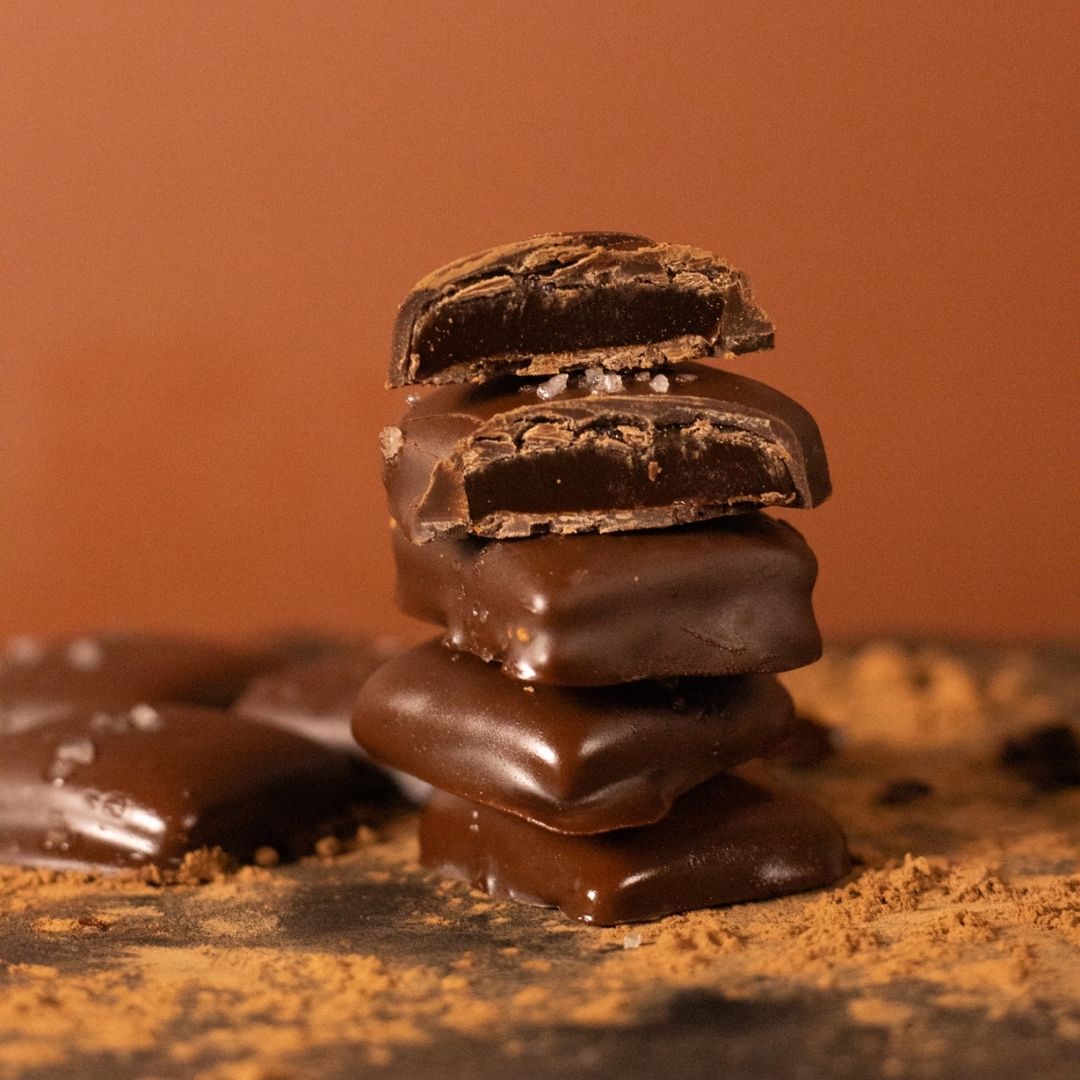Dark Chocolate for Diabetics: Benefits, Risks and Recommendations
Table of Contents:
- Understanding Diabetes and Dark Chocolate
- The Impact of Dark Chocolate on Blood Sugar
- Health Benefits of Dark Chocolate for Diabetics
- How Much Dark Chocolate Can Diabetics Safely Consume?
- Guidelines on Dark Chocolate Intake for Diabetics
- Choosing the Right Dark Chocolate for Diabetic Diets
- What to Look for in Dark Chocolate Labels
- The Role of Cocoa Content and Added Sugars
- Expert Opinions and Research Insights
- Studies Supporting Dark Chocolate Consumption
- Conclusion
- Frequently Asked Questions
Craving a sweet treat but worried about your blood sugar levels? You're not alone. The question of whether diabetics can indulge in dark chocolate is a common one.
Dark chocolate, with its rich flavor and potential health benefits, has sparked curiosity among those managing diabetes. In this article, we'll explore the relationship between dark chocolate and diabetes to help you make informed choices about your diet.
For diabetics, navigating food choices can be challenging, but understanding how different foods affect your body is key. Dark chocolate, known for its antioxidant properties, may offer some surprising advantages for individuals with diabetes.
By delving into the nuances of dark chocolate consumption, you'll discover whether this decadent treat can be a part of your diabetic-friendly diet.
Understanding Diabetes and Dark Chocolate
When it comes to managing diabetes, it's essential to understand how different foods can affect blood sugar levels.
Dark chocolate, known for its rich flavor and potential health benefits, is a popular choice for many. Let's delve into how dark chocolate relates to diabetes and its potential impact on your health.
The Impact of Dark Chocolate on Blood Sugar
Dark chocolate has a lower glycemic index compared to milk chocolate, meaning it affects blood sugar levels less drastically.
The presence of fiber and antioxidants in dark chocolate can help slow down the absorption of sugar in your bloodstream, potentially leading to a more stable blood sugar response.
Health Benefits of Dark Chocolate for Diabetics
For individuals with diabetes, consuming dark chocolate in moderation can offer certain health benefits. Dark chocolate contains flavonoids, which are antioxidants that may improve insulin sensitivity and reduce the risk of heart disease.
However, it's crucial to opt for dark chocolate with higher cocoa content and lower sugar to reap these potential benefits without causing spikes in blood sugar levels.
How Much Dark Chocolate Can Diabetics Safely Consume?
To ensure safe consumption of dark chocolate for diabetics, you should follow these guidelines:
Guidelines on Dark Chocolate Intake for Diabetics
- Portion Control: Stick to small portions to avoid consuming excess sugar and calories that can affect blood sugar levels.
- Check Labels: Opt for dark chocolate with at least 70% cocoa content and lower sugar to minimize the impact on blood glucose.
- Monitor Blood Sugar Levels: Regularly check your blood sugar levels when incorporating dark chocolate into your diet to understand its effects on your body.
- Consider Timing: Enjoy dark chocolate as part of a balanced meal to help mitigate its impact on blood sugar spikes.
- Consult Your Healthcare Provider: If you have any doubts about including dark chocolate in your diet, consult your healthcare provider to ensure it aligns with your diabetes management plan.
- Cocoa Content: Higher cocoa content is preferred as it contains more antioxidants and may have a lower impact on blood sugar levels.
- Sugar Content: Lower sugar content is essential to prevent rapid spikes in blood glucose levels.
- Individual Sensitivities: Diabetics react differently to foods, so observe how your body responds to dark chocolate consumption.
- Overall Diet: Consider how dark chocolate fits into your overall diet to maintain a balanced and healthy eating pattern.
- Physical Activity: Incorporating regular physical activity can help offset the effects of dark chocolate on blood sugar control.
By adhering to these guidelines and considering the influencing factors, you can enjoy dark chocolate in moderation as part of a well-managed diabetic diet.
Choosing the Right Dark Chocolate for Diabetic Diets
When selecting dark chocolate for a diabetic diet, you want to pay attention to specific factors that can impact blood sugar levels.
What to Look for in Dark Chocolate Labels
When browsing through dark chocolate options, focus on labels indicating high cocoa content of at least 70%.
Additionally, opt for dark chocolate varieties with lower sugar content or those sweetened with stevia or erythritol, which are safer alternatives for diabetics.
The Role of Cocoa Content and Added Sugars
Higher cocoa content in dark chocolate is favorable for diabetics due to its lower sugar content and higher antioxidant levels.Avoid dark chocolates with added sugars or artificial sweeteners that can spike blood sugar levels.
Opt for quality dark chocolate to reap the benefits of its flavonoids without compromising your blood sugar control.
Expert Opinions and Research Insights
Studies Supporting Dark Chocolate Consumption
- Research studies have shown that consuming dark chocolate with high cocoa content can improve insulin sensitivity in individuals with diabetes.
- The flavonoids present in dark chocolate have been linked to reduced risk of heart disease, making it a potentially beneficial choice for diabetic individuals.
- A study published in the "European Journal of Nutrition" indicated that dark chocolate consumption is associated with lower levels of C-reactive protein, a marker of inflammation that can contribute to cardiovascular issues.
- Healthcare professionals typically suggest incorporating dark chocolate with at least 70% cocoa content into a diabetic diet.
- Portion control is key, and it's advisable to enjoy dark chocolate in moderation to prevent spikes in blood sugar levels.
- Consulting with a healthcare provider before adding dark chocolate to your diet can help personalize recommendations based on individual health needs and sensitivities.
Conclusion
Dark chocolate can be a delicious and beneficial treat for individuals with diabetes. Its lower glycemic index, high fiber content, and antioxidants make it a favorable choice for maintaining stable blood sugar levels.
Incorporating dark chocolate with at least 70% cocoa content into your diet can potentially improve insulin sensitivity and reduce the risk of heart disease.
Remember to practice moderation, opt for dark chocolate with minimal sugar, and consult with your healthcare provider for personalized recommendations.
By selecting high-quality dark chocolate and being mindful of portion sizes, you can enjoy the health benefits of flavonoids without compromising your blood sugar control.
Frequently Asked Questions
How does dark chocolate benefit individuals with diabetes?
Dark chocolate has a lower glycemic index, contains fiber and antioxidants, leading to a stable blood sugar response. Its flavonoids can improve insulin sensitivity and reduce the risk of heart disease.
What is the recommended cocoa content for dark chocolate in a diabetic diet?
Healthcare professionals suggest incorporating dark chocolate with at least 70% cocoa content to maximize the benefits of flavonoids and maintain better blood sugar control.
Can consuming dark chocolate in moderation help lower inflammation in individuals with diabetes?
Yes, studies have shown that dark chocolate with high cocoa content can enhance insulin sensitivity and reduce levels of C-reactive protein, a marker of inflammation linked to heart issues.

